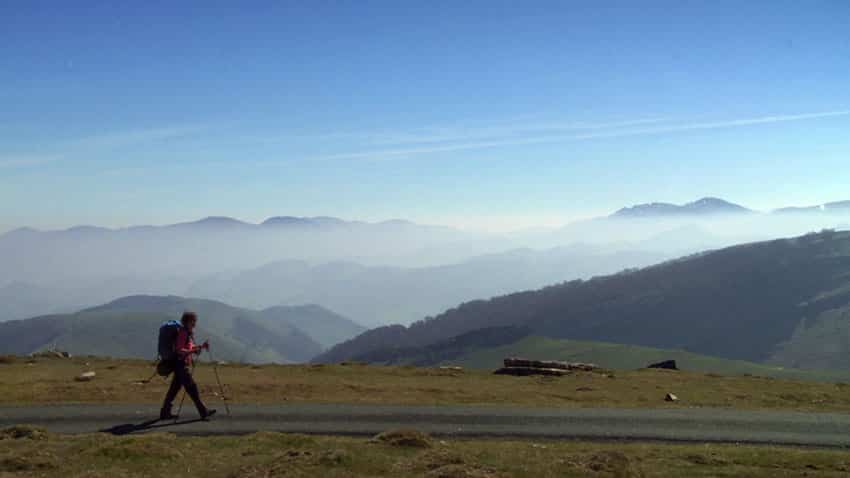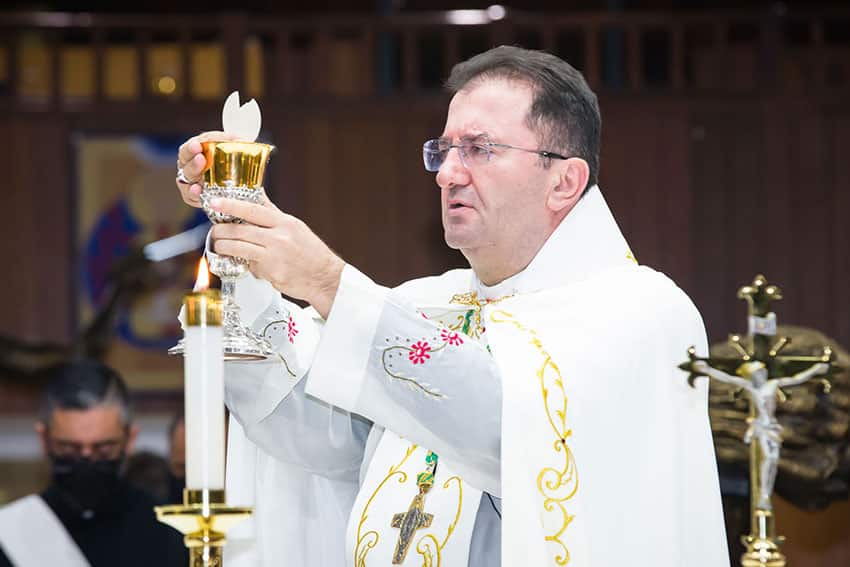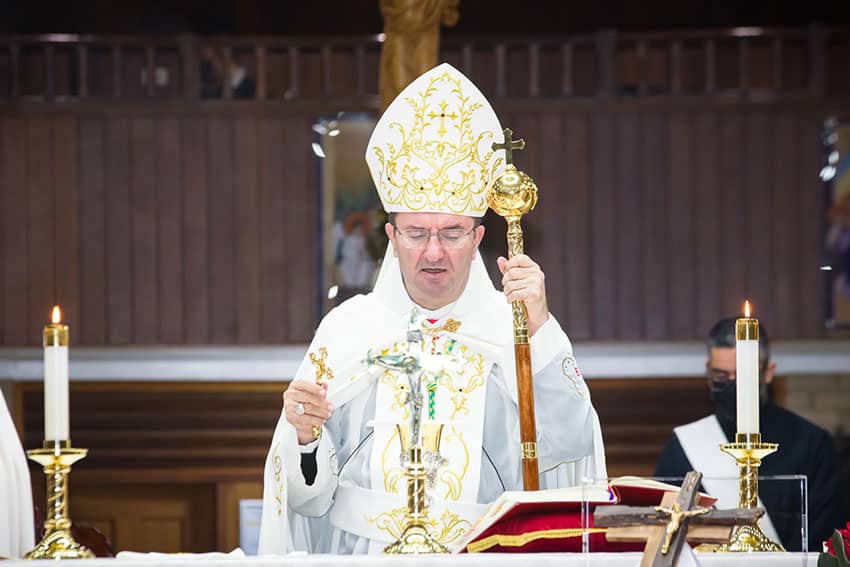
Brothers and Sisters in Jesus-Christ our Lord,
“Who, then, is the faithful and wise slave whom his master has put in charge of his household to distribute to them their food at the proper time?”
These days of the Plenary Council for the Catholic Church, here in Australia mark not only a historic event, but also a journey of conversion full of hope discernment and spiritual renewal. And for we who are committed to this plenary pilgrimage, there are other questions we may ask based on the Gospel we just heard: is it only the food for the household? What of the other needs? Not also for their warm clothing, their shelter, their consolation in times of sorrow? Does the steward bear no responsibility to encourage them in the hard days, when the work is long and seems incapable of resolution? To remind them, in their times of happiness and rejoicing, that they are not alone in this world, but must have a thought for the poor, the wretched, and the outcast?
In the Eastern tradition, similar parables are read together, and quite obviously, one like parable which demands our attention with this one is the parable of the talents. In both there is a master, he gives a charge to his servants, then he goes away to return on a day that they know not, when he shall reward all in accordance with their deeds.
We are the servants of the Lord to whom these words are directed. He has given us both duties and responsibilities, privileges and obligations. The two cannot be disassociated: it is only by reason of His gifts to us that He can demand more from us. It is because we have been granted consciousness and the power of judgment that we can be called to account for what we have done deliberately and for what we have left undone through negligence.
We are the servants of the Lord to whom these words are directed. He has given us both duties and responsibilities, privileges and obligations. The two cannot be disassociated …
This is one message, among many, for the plenary pilgrimage on which we are embarked. It is not our Church – it does not belong to us. And the people of the journey are not our people except and insofar as they have been entrusted to us by the Lord, not for our sake or because we have deserved to be placed above anyone in any way.
No, we are engaged in this journey because the Master of the Pilgrimage has given us everything we need and more, and expects us to recognise our privileges and our responsibilities, and to care for those who belong to the Master as much as we do, who are as close to His heart as we are.
This seems difficult to bear in mind when we are making decisions which will be implemented by the Church. We see that we plan, and we direct, and then it is done. But we are not to do this on our own behalf or in our name: we are but unprofitable servants. We did not lay this duty upon our own shoulders. And so the road of the pilgrimage opens before us, and we have much to bear as we proceed on the way.
The Plenary Council journey for our Catholic Church in Australia began in 2016, although maybe it was prepared for us from the beginning of time. If so, then we need to be aware of our position, and above all, humble and grateful. There cannot be gratitude without humility, any more than there can be humility without gratitude; for pride knows no debt to anyone else, while ingratitude hardens the heart and despises a kind word.
we need to be aware of our position, and above all, humble and grateful
Only if we are humble and grateful, do we see that we have nothing to offer which does not come from our Master, that we have nothing to offer which is not directed to his worship and to following His will here on earth. And we find a perfect example of this humility and gratitude in the Virgin Mother, Our Lady of the Rosary, whose feast we celebrate today.
Only if we are humble like our Holy Mother do we feel the need to put our talents to work, and to labour without ceasing. The proud seek the praise of others. The humble care nothing for that, their hearts are fixed upon the Master who can invite them to enter into His joy. And they thank him, with full hearts, for His goodness to them. They recall: “thanksgiving” is the meaning of the word “Eucharist.” They repeat the words of Our Lady: “My soul proclaims the greatness of the Lord, my spirit rejoices in God my Saviour, for he has looked with favour on his lowly servant.”

Now, with humility and gratitude combined, I say that the Eastern Catholic Churches have been making this journey in unity with all of you, our brothers and sisters of the Latin Catholic Church. Not as if we were princes travelling to a feast in our honour, but as dusty and patient pilgrims, helping each other to renew our faith, to strengthen our hope, and to approach the mystery of love, through that inner conversion which was called “metanoia”, the change of mind or transformation which only prayer and the discipline of the spirit can bring about.
Our Lord said that he who loves his life will lose it, and he who hates it in this world will keep it to life everlasting. This is one aspect of “change of mind”, because we usually look to the world, and try to hold onto earthly joys while seeking to have added to them the gifts of heaven. But true conversion of mind would do the opposite: it would seek God and the kingdom of heaven first, and then, as He said, all these things will be added unto you.
And so it is with this plenary pilgrimage. If we think first of Our Lord who placed us where we are, given us our responsibilities, then – if we discharge His commandments to the best of our ability, in humility and gratitude – we thus change our minds, we convert our hearts. By being fixed on God, and growing only in His light, only then we may take on the character of our Master. Our aims become clearer, our minds become calmer, and our hearts learn true serenity.

Dear Friends,
I pray for all the delegates to the Plenary Council, that they may be guided by the Holy Spirit. I also pray for our Church in Australia to continue giving witness to the Gospel of life. But one cannot presume. We cannot simply say “the Spirit is speaking” and make it so. That would be pride. No, for this plenary pilgrimage, we – like the servant in today’s Gospel – need humility and obedience to the Word of the Master, and we must tend to His other servants with charity and love, from the fullness of our hearts. Amen.
Related
